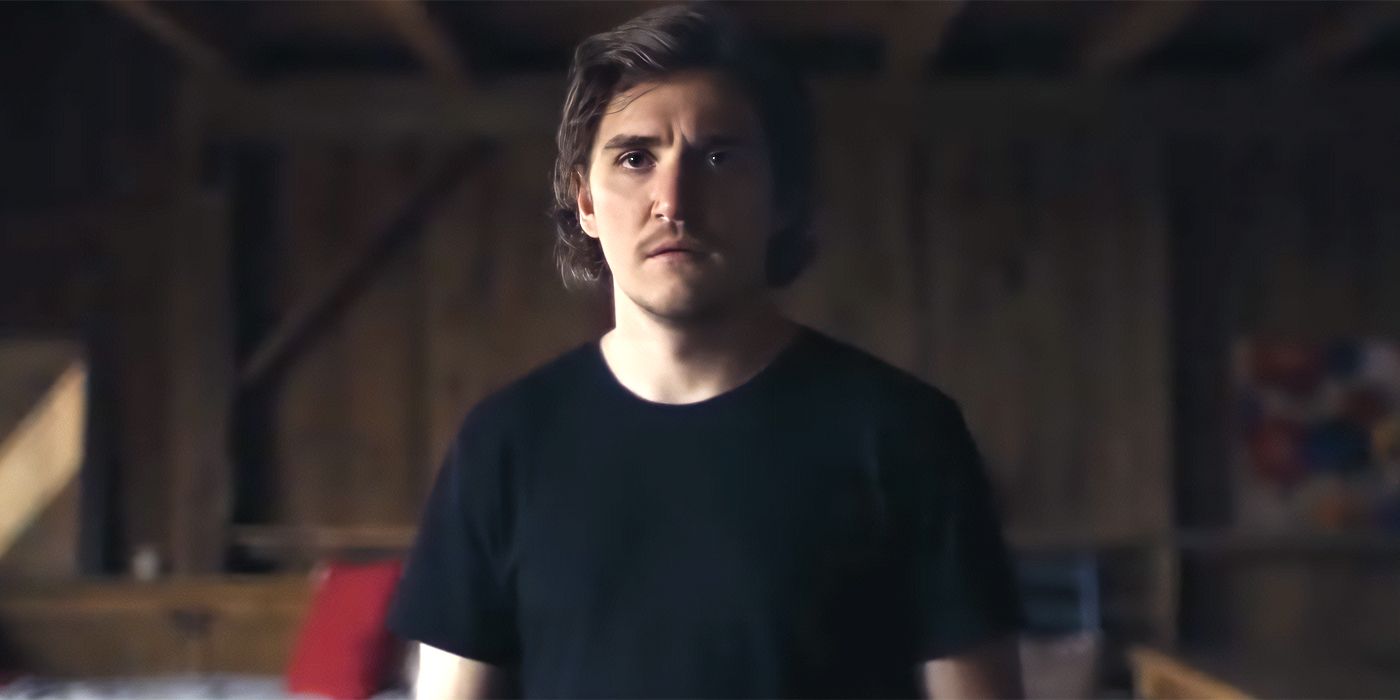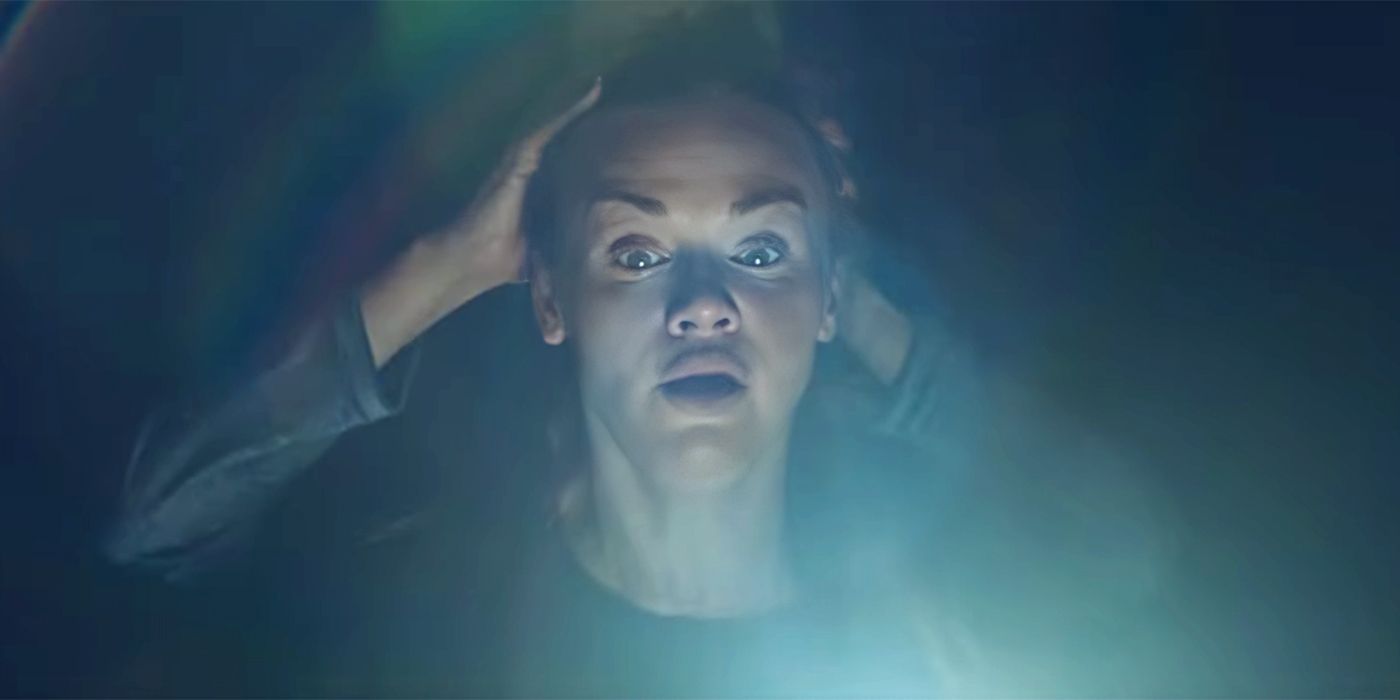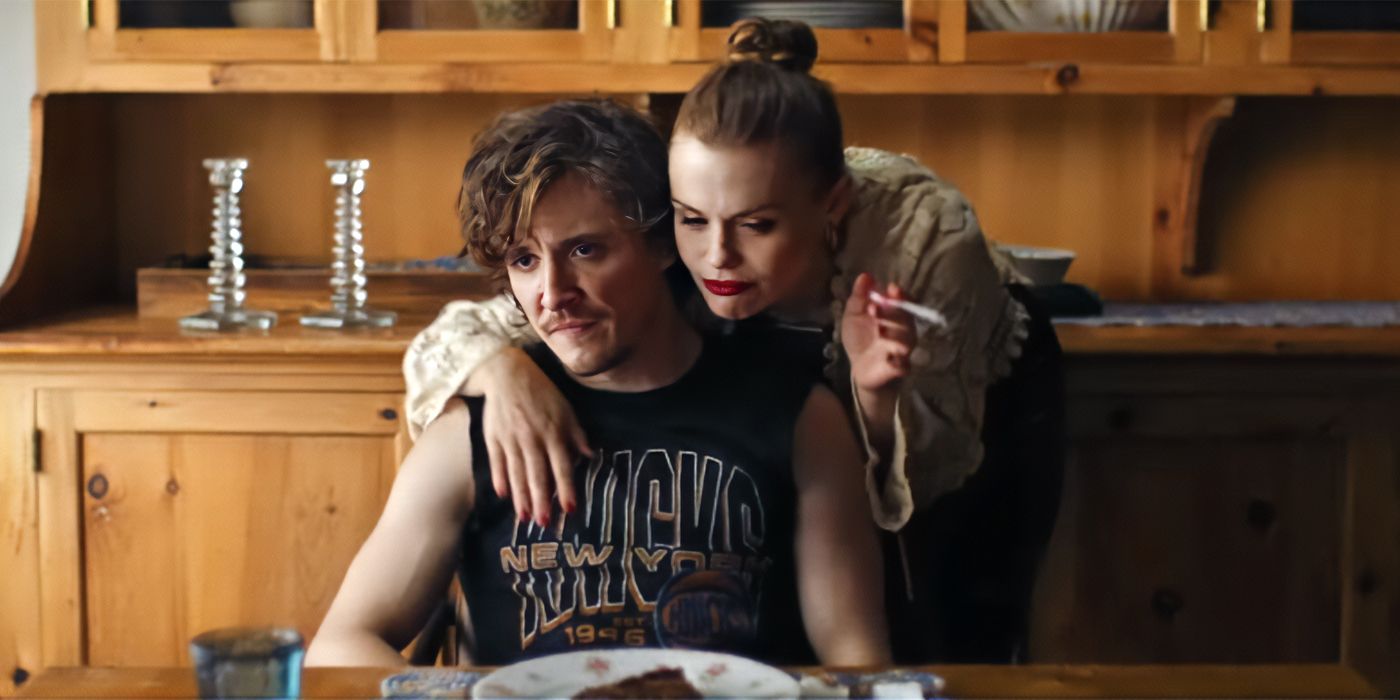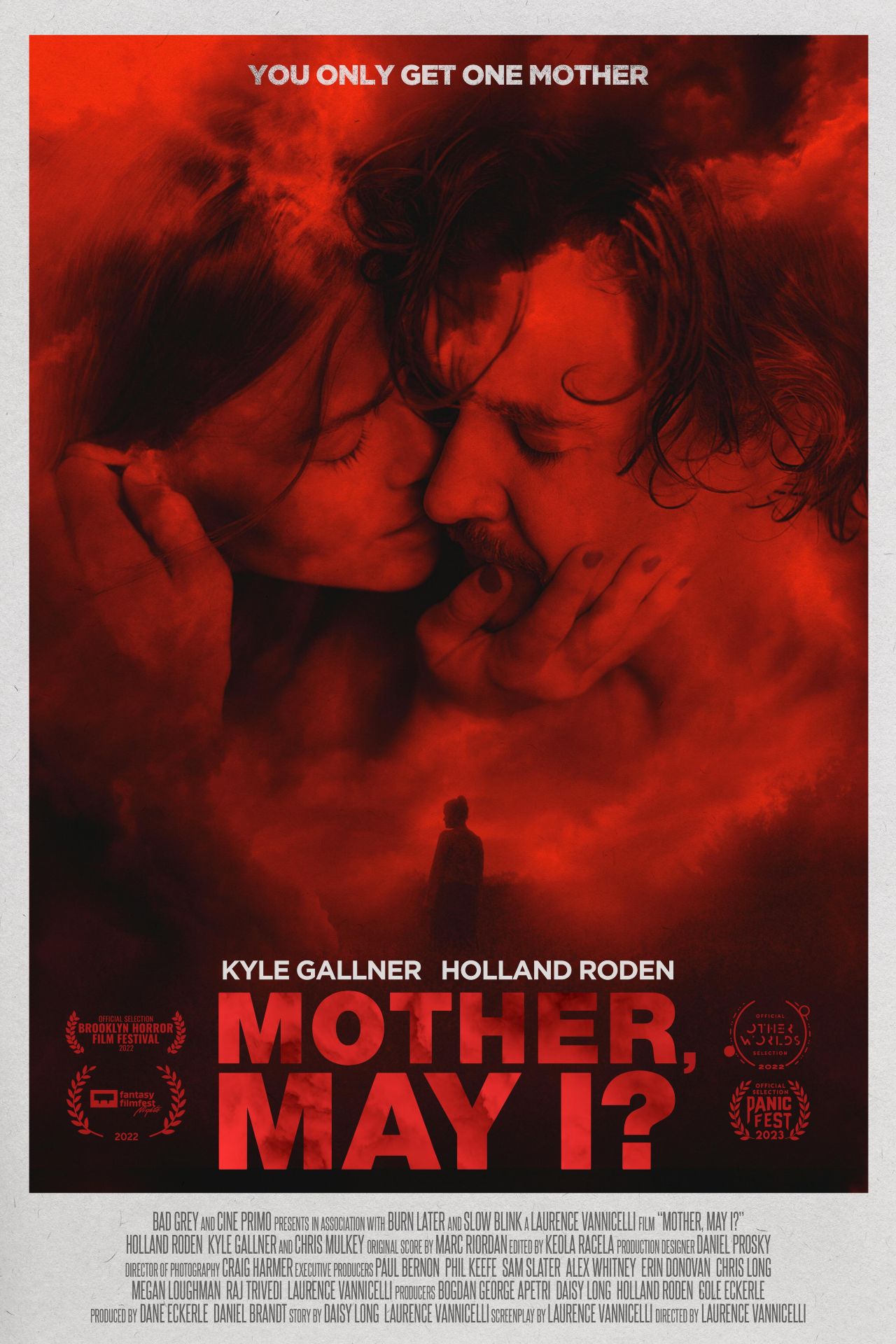A psychological game for growth becomes a tense battle for a soul in Mother, May I?. Brace yourself as Emmett, a young man who recently lost his mother, embarks on a journey with his fiancée Anya to prepare his childhood home for sale. However, after a night of taking mushrooms and unpacking childhood trauma, Anya undergoes a complete transformation, leaving Emmett shaken to his core.
Horror genre veteran Kyle Gallner and Teen Wolf alum Holland Roden lead the small cast of Mother, May I? alongside Chris Mulkey. This gripping movie challenges the audience’s expectations of a typical possession story, keeping them guessing and enthralled by the emotional turmoil endured by Emmett and Anya.
In anticipation of the movie’s release, FilmmakerFocus had an exclusive conversation with writer/director Laurence Vannicelli. They discussed Mother, May I?, the highs and challenges of its indie production, finding the perfect look for the psychological horror-thriller, and more.
Editor’s Note: This piece was written during the 2023 WGA and SAG-AFTRA strikes. Without the labor of the writers and actors currently on strike, the movie being covered here wouldn’t exist.
Laurence Vannicelli Talks Mother, May I?
FilmmakerFocus: Holland Roden told me how indie production was on this, what was it like from your perspective putting this movie together?
Laurence Vannicelli: It’s funny, in some ways it was extremely difficult in terms of — first of all, every movie is difficult, and honestly, people who are going to go watch movies, I think, could probably care less to hear filmmakers complain about things being difficult. But on the flip side of it, it was also just a magical experience. We set out to do a creative summer camp, and somehow we just got this incredible group of people, and everyone was down for that, and we did it. There were, I want to say on average, 12 people, including cast, on any given day, and most of us lived in that big barn where we filmed, and it was really hard work, but we did French days, which was two hours shorter. We had longer evenings, and me and the DP would just basically face plant after the day, but everyone else would just hang out and talk and drink wine, and even though I was too exhausted to participate, it made me so happy to see that people enjoyed the experience of shooting enough that they wanted to continue to hang out. It’s the opposite of a set where people are yelling at each other, and grumpy or anything like that.
That’s definitely what you hope for from a production, I’m glad that you got to have that experience, even on this small of a shoot. Since you did mention the DP, I did want to hear what was it like coming up with the look for this movie, because it is such an intimately shot film. Holland was even comparing it to horror genre works of the ’70s.
Laurence Vannicelli: I think the world of him, truly. He literally carried the film on his back, as a metaphor, but then also just physically carried the entire film on his back. [Chuckles] It was just such a great collaboration, we’re now really good friends, we hang out and talk about art and movies and life. But we didn’t know each other before this, and when we were interviewing DPs, he came recommended to me from a good friend who’s one of the co-producers on the film, Rob Cristiano, and he recommended Craig. When we first met, one of the first things Craig said was like, “You could shoot this like a Cassavetes movie.” Meaning he would let actors run camera and just follow performance, and I said, “Well if this cinematographer is open to the idea of letting go control that much in service of what’s best for the movie, I was very much like, ‘This is the guy,'” and he just was wonderful, that level of collaboration. Then, in terms of our references, we definitely went into a lot of ’70s American cinema, which we love, which we’re certainly not the only ones. But we were really just trying to come up with our own language that would get you in. We wanted it to be a very subjective experience, and yet it’s a two-hander, so that subjectivity has to be able to switch back and forth while also playing with the language of a genre film. Doing all of those things all at once was so fun, and then coming back to the Cassavetes thing, we wanted performance to dominate. We never wanted to get in the way of what Holland and Kyle were doing, that was the game plan, was come up with a very lush language, but then step back and let performance dominate what they wanted to do.
Well I love that you took that approach, because when you have performers like Holland and Kyle, it’s great to let them shine. Since we’re talking about them, Kyle is of course no stranger to the horror genre, Holland herself also has roots in it, but how did you go about looking for your two leads to help bring this story to life?
Laurence Vannicelli: The process was quite fun. I’ll just say, off the bat, I think there are times when you watch movies, and you realize they didn’t have the money they needed make the movie, and I feel like getting Holland and Kyle is just the biggest treat, and if we had had 10 times the budget, we would’ve made the same movie. We would’ve maybe slept in more comfortable beds, but everything that’s on screen is what we wanted it to be, and it’s just because we got these incredible actors, and that’s what the whole movie is about. The process was we met Holland first, Holland came on really early. She was living in a van with her dog, a very cool, nice van, not like a Chris Farley kind of thing. She was just so open, and she was so down, and I knew that she would be down for this kind of summer camp approach. She and I just really, really started working on the characters — she basically played two characters. We just really started collaborating on that really early, and I think that built a lot of trust. A lot of her ideas, it was still early that we could change the script, so we really crafted that together. Then, it was her idea to reach out to Kyle, and he said yes, and once we had the two of them, we were just off and running. When I look back, I still just think, “How did we pull that off?” And it’s not me, it was the producers of the film that pulled that off, but I’m still pinching myself.
Holland was telling me that she had pinched herself every day. In talking with her and reading about it, I know that you developed this movie with your partner Daisy during the pandemic. How did that begin, where did that process start, and how did that evolution come about?
Laurence Vannicelli: Daisy and I, when we started, we developed a script together completely. She was a professional dancer for many years, so all of it was very, very collaborative. We actually hadn’t been dating for that long, and we are now married, so luckily doing this did not break us. But we would go on long walks — the initial idea was just a weird dream. It was a weird dream of what would happen if you took mushrooms with someone, and they started behaving like someone else, and it just didn’t stop, what would you do? From that, the movie was Daisy and I going on walks and just exploring different ideas. We would act scenes out, we would try to do the weird therapy stuff that’s in the movie to each other, it was very playful and very collaborative.
Oftentimes with movies like this, there is some level of personal touch, as far as story, or character from the writer or director’s own past. Outside of Daisy’s dancing history, were there any personal history touches for yourself that was put into this movie?
Laurence Vannicelli: Yeah, I think Daisy and I came up with this idea of when you’re in a relationship with someone, does love mean that you should accept them, or does love mean that you should try to change yourself to be better for them? That is almost a dialectical conflict about the very nature of love. I know that that sounds extremely like I’m up my own a– [chuckles], but that was the guiding principle of the whole thing. The idea was she and I were in a relationship, it was a new relationship, and because most people are f—ed up — we’re all so f—ed up — and we just were thinking a lot about what is the baggage that we’re bringing into this relationship, and can we overcome our own baggage in order to be a good supporting partner? This movie was really born from the two of us navigating who we are, and who we can be to each other, and how do we support and love each other? Do we accept each other’s failures, do we try to improve ourselves, do we try to correct each other’s mistakes? It was a deep exploration of love and relationships.
other? All of these things I think most people deal with in love is really the core of the story for us. Neither one of us, as far as I know, have been possessed by a foreign entity — yet — but that’s more of the personal side of where this comes from.












